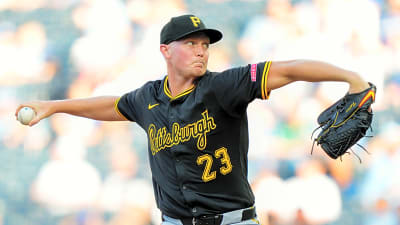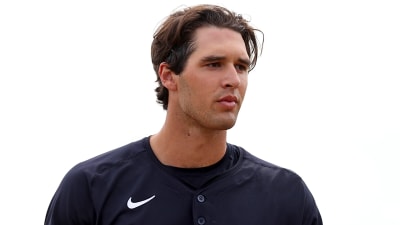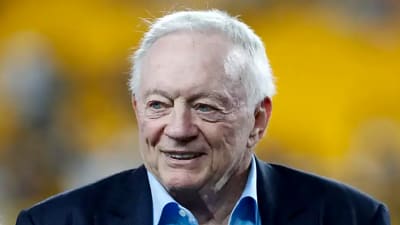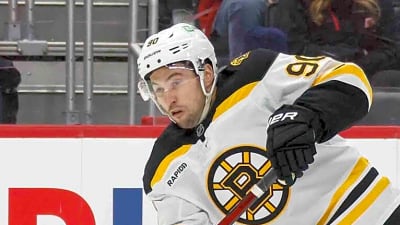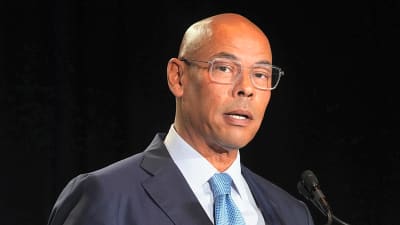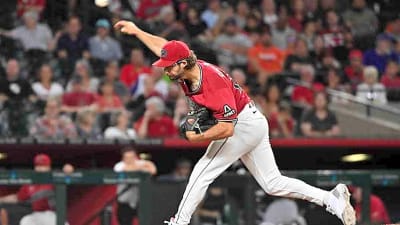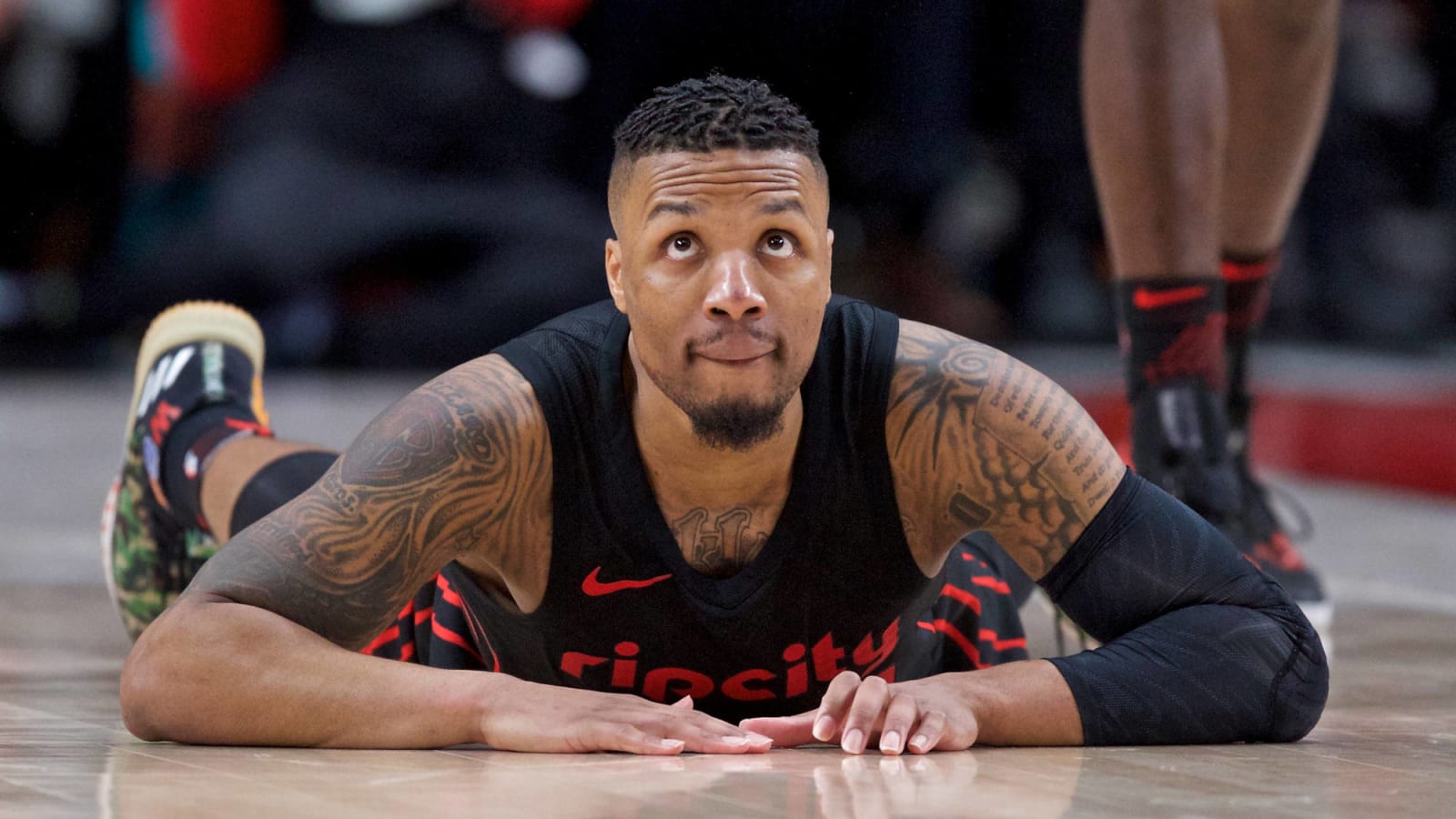
Who should be NBA MVP? The case for the top five candidates
The NBA is in the process of preparing for the postseason, which means it’s time to give a fair evaluation of the season and start thinking about regular-season awards. The most important of those is the NBA’s Most Valuable Player, which was taken home by Russell Westbrook last season.
While Westbrook may not finish in the top five this season, it should be noted here that he was excellent again for the Thunder, finishing the year averaging a triple-double for the second consecutive season. Other notable players not mentioned below include Giannis Antetokounmpo, whose team crumbles when he isn’t on the floor, and DeMar DeRozan, who led the Toronto Raptors to the top seed in the Eastern Conference.
This year’s candidates have been levels above everyone else, though. Here is the case for the each of the top five MVP candidates, starting with James Harden.
James Harden: 30.4 PPG | 5.4 RPG | 8.8 APG | .619 TS% | 15.4 WS
The best player on the best team argument is always going to hold up in any MVP conversation. The Rockets were somehow able to weather the injuries to Chris Paul, Clint Capela and even James Harden himself to finish the year with the NBA’s best record at 65-17. Harden, even while sharing the backcourt with one of the greatest point guards in the history of the game, was the team’s primary decision maker whenever he was on the floor.
He wasn’t just the Rockets' best player; he elevated literally everyone around him. If you take a look at Basketball-Reference’s MVP tracker, Chris Paul is third on the list behind Harden and LeBron James, while several other players saw their best shooting percentages in quite some time: Trevor Ariza, best in the last four years; Eric Gordon, best in last nine years; Capela, best of his career; Ryan Anderson, best of his career; Luc Mbah a Moute, the best of his career; Gerald Green, best in the last four years.
Harden’s work in pick-and-roll sets has been phenomenal, he has the game’s most lethal step-back, and his ability to get to the rim at will has created a constant gravitational pull that teams couldn’t help but to help off shooters to try and stop who might be the game’s most unique scorer. While Harden didn’t have the all-around box-score-stuffing numbers that he had a year ago (29/8/11), his three-point shooting jumped 20 points this year while his turnover percentage dropped four points despite an elevated usage rate.
Harden was more efficient and less turnover-prone following a year in which he set myriad records in his season-long effort to compete with Westbrook for MVP. Russ may have finished with a triple-double for a second consecutive season, but there is no doubt about who had the better season this time around.
LeBron James: 27.5 PPG | 8.6 RPG | 9.1 APG | .621 TS% | 14.0 WS
On the surface, LeBron James’ numbers feel more impressive than James Harden’s, and he’s doing a lot more with those numbers with less talent around him. The Cavaliers have dealt with myriad injury issues, a midseason rehaul of the team and had their head coach take a stress-related leave of absence with the only constant through all of this being LeBron’s unadulterated brilliance.
James has posted the best true shooting percentage of his career, best assist percentage and best rebound percentage while playing 82 games in his 15th season at 33 years old. James, even if he isn’t the MVP, is still far and away the best basketball player on the planet, and for some, this alone should trump the best player on the best team argument.
Unfortunately for LeBron, the Cavaliers finished as the fourth seed in the Eastern Conference behind the Raptors, a depleted Celtics team that lost arguably its best player on opening night and a youth-driven 76ers team that many thought would be a year away from the season they just had.
The Cavaliers finished with the NBA’s second-worst defense, and James was very much a huge reason for that early in the season. However, James, and James alone, is the reason why the Cavs are still the team to beat once the postseason begins and the sole reason they were competitive on any given night. It wouldn’t make any sense if James finished anywhere but the top two in the MVP race, and no one would be surprised if he won it.
Anthony Davis: 28.8 PPG | 11.1 RPG | 2.6 BPG | .612 TS% | 13.7 WS
After DeMarcus Cousins went down with a season-ending Achilles injury, no one would have been mad at Davis if the team packed it in and missed the playoffs. Instead, Davis went on a tear in the second half of the season and willed this team into the postseason. He is going to be considered for the Defensive Player of the Year Award (he probably won’t win that either) after leading the league in blocks and possibly leading the NBA in responsibility on that end. Davis has effectively been a monster on both sides of the floor, but he isn’t without his flaws.
It’s hard to imagine a player from a sixth-seeded, 48-win team taking home the highest individual honor in the game until you remember everything Westbrook had to do statistically to win it for the 47-win, seventh-seeded Thunder last season. Davis has been excellent, but he hasn’t been transcendent on a nightly basis like Russ was last year. Westbrook was must-watch basketball while Davis had a “let me check the box score first thing in the morning" kind of year.
This shouldn’t diminish what he’s been able to accomplish, though. Davis had a few nights in which he had pretty much everything going — 20 and 10 has been an industry standard for normal NBA bigs, but Davis was so incredible it’s hard to see 20 and 10 as much of an accomplishment for him. If you start looking at things from a 20 and 15 perspective and go up from there, Davis had some wild nights.
The number of nights he recorded at least:
- 20 points, 15 rebounds: 13
- 30 points, 10 rebounds: 22
- 30 points, 15 rebounds: 10
- 40 points, 10 rebounds: 8
- 40 points, 15 rebounds: 6
- 50 points, 10 rebounds: 1
- 50 points, 15 rebounds: 1
Only Cousins was able to match Davis’ insane numbers in the frontcourt (a pair of 40-20 nights for Boogie). For him to still lead an incredibly flawed Pelicans team to the postseason in such a competitive Western Conference is as impressive as any single individual performance all season long.
Kevin Durant: 26.4 PPG | 6.8 RPG | 5.4 APG | .640 TS% | 10.4 WS
It’s a little strange to know that the Warriors finished with 58 wins and was, for all intents and purposes, a disappointing season. With Kevin Durant in year two and fully integrated into the Golden State system, there would be no time needed for this team to figure out how to work him into a system that was already bordering perfection. This team was expected to push for 70 wins in its sleep, but injuries and a lapse on the defensive end of the floor led to a slight drop in wins from previous seasons.
However, 58 wins are nothing to sniff at, and Durant was largely the reason why the Warriors were able to push for 60 this season with Steph Curry missing 31 games. Durant missed 14 games himself, but in the 68 games that he did play, he was brilliant. Durant nearly posted the vaunted 50/40/90 season, just .011 free throw percentage points away from the mark. He improved his all-around playmaking after picking up some ball-handling responsibilities in Curry’s absence, posting the highest assist percentage of his career.
Durant’s best basketball came on the other end of the floor as he’s continued his growth into becoming an elite defender. Using his length and intelligence, Durant was able to stifle players all season on a team that wasn’t what it should have been collectively. He has the ability to switch to nearly every position and defend effectively and is incredibly disruptive in the passing lanes. When he, Draymond Green and Klay Thompson are focused, there isn’t a better trio of defenders in the NBA.
Durant, however, has been more consistently focused on that end than pretty much anyone else on the team. Fatigue and a general sense that the Warriors realize that they’re good enough to coast and finish near the top of the league contributed to them falling on the defensive end. That collective mind-set has hurt Durant’s MVP candidacy, however — no matter how brilliant he has been on both ends of the floor.
Damian Lillard: 26.9 PPG | 4.5 RPG | 6.6 APG | .594TS% | 12.6 WS
Damian Lillard entered the MVP conversation on Valentine’s Day, even if we didn’t know it yet. Dame hit his hometown for a smooth 44 and eight that sparked a 13-game win streak that was smack dab in the middle of the Blazers' winning 17 of 20 and elevating them from a middle-of-the-pack basketball team to the third seed out West.
During the win streak, Lillard averaged 30/4/6 while shooting just under 40 percent from three on just under 10 attempts per night. During the 20-game stretch that brought Portland out of the abyss, Dame had nights where he recorded 50, 39, 44, 40, 35, 39, 37, 32 and 40. He only scored fewer than 20 points once during that stretch, the first night when he dropped 18.
Without Lillard’s brilliance, the Blazers are one of the five teams that didn’t know whether they’d be a playoff team until the final week of the season; with it, the Blazers host their first-round series against the Pelicans.
Lillard played the second half of this year with the same chip on his shoulder that made him rip apart the league the last few seasons despite playing in this year’s All-Star Game. Add in what C.J. McCollum has done this season, and the Blazers' emergence might be the biggest surprise of the season.
More must-reads:
- Why James Harden is the 2018 NBA MVP
- Each NBA team's regular-season MVP
- The 'Most points in a game by NBA team in 2024-25' quiz
Breaking News
Trending News
Customize Your Newsletter
 +
+
Get the latest news and rumors, customized to your favorite sports and teams. Emailed daily. Always free!

